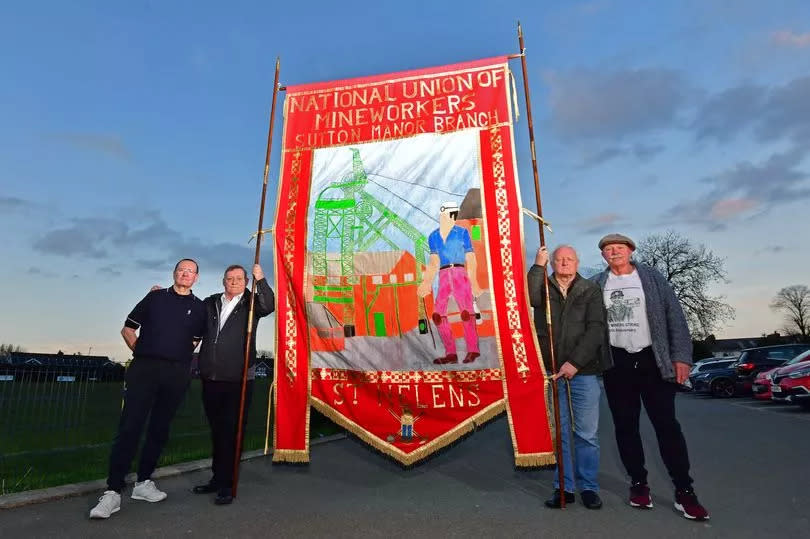Miners' Strike tales spark memories of 80s struggle against pit closures

When three ex-miners told the ECHO of their part in the Miners' Strike of 1984 and 1985 it led to more readers sharing their memories of that tumultuous time.
This year marks the 40th anniversary of the historic fight to protect a way of life that has since faded. Nearly 190,000 people were mineworkers at the time the National Coal Board announced plans to shut around 100 mines and pits across the country at the beginning of 1984.
The resulting strike touched all corners of the country, including St Helens which had three collieries at the time. When the dust settled a year later, Margaret Thatcher's Conservative government declared itself the victor, and the reputation of the "Iron Lady" was secured. Many still remember that time, with conflicted feeling.
READ MORE: Day Liverpool came to a halt and 50,000 gathered in the city
READ MORE: 'She didn't beat me' - The miners who took the fight to Thatcher
Commenter Chooch wrote in our comments section: “I have deep memories of the Miners' Strike although I was in South Wales/Port Talbot steelworks mostly. I have deep memories of the comradely welcome of the South Wales miners and their struggle for justice. The only other struggle that matched the miners was the Liverpool Dockers in the mid-90s.
"Both the miners and dockers treated me and others with the greatest respect and friendship. What times they were and what respect I maintain for both groups of workers. The struggle continues!”
READ MORE: 'We hated Tories. We hated Thatcher. People were very bitter.'
Commenter Kellogs1942 said: "I doff my cap to you all, gentlemen. I am retired now. I worked the high steel as an ironworker/welder. Way up high. I do not think I would have the 'bottle' though, to work an eight hour shift underground in the pit. Respect.” User Shoea worked alongside those who would go on strike. They said: “I used to go to many of the pits with lube oils for the machinery, and they were all a great bunch of lads.”
Markashington was on the front lines. He said: “[I] remember picketing at Sutton Manor and Bold (two of St Helens' collieries) in '84, stopping at Sutton Manor Miners' Hall, and a rally in St Helens, a busload came up to Ashington.” Poopster59 was nearby at the time: “I fund raised for Sutton Manor and shared the heart-breaking months that the great men and women of that town had to endure! God bless you all and RIP to those great people that have passed!”
Some think about "what might have been", such as user Littlehulton1, who said: “The miners were stitched up without a doubt. Maybe the establishment thought they had won the battle at the time, not so. Their actions have resulted in mass long term unemployment country wide. But we have the Northern Powerhouse, sounds great, just don't know what is actually involved.”
READ MORE: 84 pictures that capture the reality of the miners' strike
PeterSWC writes: “Striking for a decent wage and working conditions is one thing but unfortunately striking to keep something open 'indefinitely' when it goes against a national strategy can only end up one way. Scargill would have done far better for the 'pit villages' in particular if he had used the strike as a way of securing concessions from the government to provide long term solutions to alternative employment etc.”
Commenter Northener added: “Brave hard working men deserve a medal. But Thatcher had planned this years before, they put on unlimited overtime, even weekend working, they had up to two years of coal on the surface so the lights did not go out. But what gets me is why the union did not see this coming. With all the extra over time, the country was not using more coal so they could have put an overtime ban on to stop them stockpiling coal, giving the union more leverage over Thatcher and maybe win.”
Mamoru says: “Total respect for every miner who has ever worked down the pit. They are the true meaning of the word workforce.”
What was life like for you and your family during the Miners' Strike of 1984 and 1985? Comment below, and join in on the conversation.
Don't miss the biggest and breaking stories by signing up to the Echo Daily newsletter here

 Yahoo News
Yahoo News 
